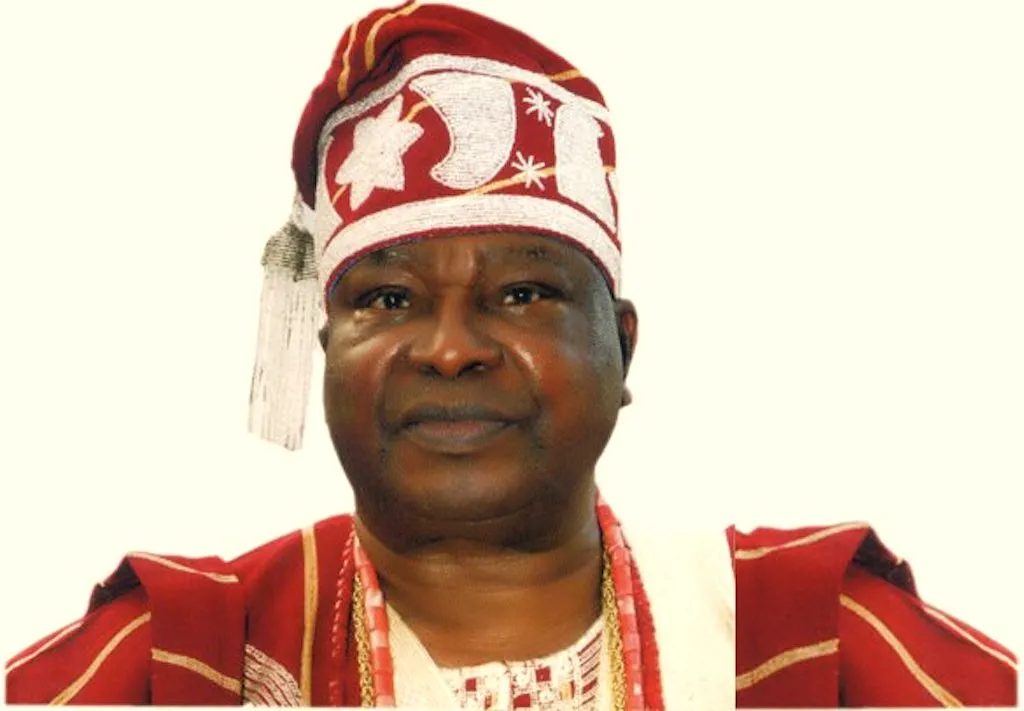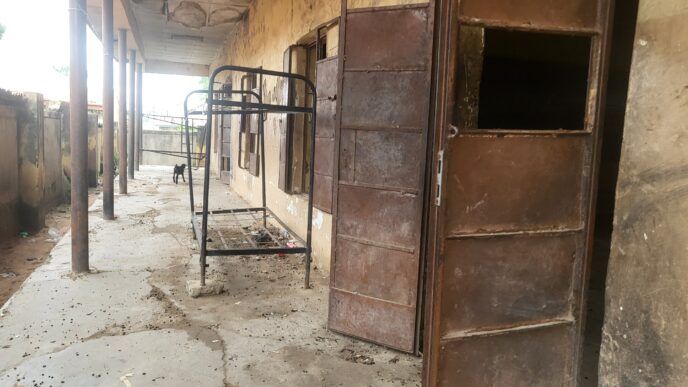Sikiru Olukayọde Adetọna, Ọgbagba Agbotewole II [The Awùjalẹ̀ of the Ijẹbu-Ode]
It’s a curious paradox that often besets us, Nigerians. We frequently don the robes of piety, proclaiming our proximity to the divine with fervent displays of faith, even as our nation reels from a pervasive godlessness that, frankly, stinks to high heaven. Let’s be clear: this isn’t about religion, be it Christianity, Islam, or Isese. No, this is about the pungent hypocrisy that defines us as a people. We proudly wear our religious affiliations like badges of honour, readily identifying as Christians or Muslims, yet our collective conduct often remains anything but honourable. Suddenly, with the recent transition of the revered Awujale, a chorus of voices has emerged, championing Isese. One must ask: from whence did this fervent devotion spontaneously bloom?
To unravel this newfound zeal, let’s journey back to the genesis of this narrative. My own interest was piqued by Tayo Bello, the insightful creator of the popular Yoruba program “Waa Sere.” Known for his sensible demeanour and his usual avoidance of political and controversial terrains, he has, in this instance, plunged headfirst into the fray. The Yoruba adage, “Amukun, erun re wo, o ni oke le now, e wo isale” (Limpy, look at your load, he says it’s on top you are looking at, but look at the bottom), serves as a potent reminder that we’re dealing with a matter of law. While I confess to no legal expertise—my understanding of the law extends only to observing it to steer clear of trouble—I am fortunate enough to read and comprehend English. This brings us to the relevant legislation: the Obas, Chiefs, Council of Obas and Traditional Council Law of Ogun State, Bill 2021.
This seminal law was crafted to provide an approved and structured framework for the selection, appointment, recognition, grading, regulation, and deposition of Obas and Chiefs within Ogun State. Its noble aim is to safeguard our rich culture and traditions while simultaneously fostering order, legitimacy, and significantly reducing the endemic chieftaincy disputes that have plagued our communities. The late Oba Olukayode Sikiru Adetona was, in essence, the very heartbeat behind this transformative bill. It was subsequently formally championed in the Ogun State House of Assembly by Rt. Hon. Olakunle Taiwo Oluomo (Prince), then the Speaker of the House, with the valuable support of other distinguished Honourable members.
The legislative journey of this bill, which commenced in June 2020 and culminated in its passage in 2021, was by no means a tranquil one. It was marked by robust debate and palpable division, particularly regarding the contentious issue of traditional rulers’ burial rites. Public hearings buzzed with impassioned arguments, and controversies flared, especially around Section 55. Yet, despite the fervent public and stakeholder debates, the bill ultimately found its way to passage, bolstered by necessary amendments and a unanimous voice vote within the House. It bears remembering that even a revered monarch like the late Oba Adetona, in 2020, understood his own mortality. At 85 years old when the bill was initiated, he was, like all of us, preparing for the inevitable – death. Let’s set aside notions of “alase ikeji orisa” (the ultimate authority, next only to the gods) and “Kabiyesi” (Your Majesty) for a moment; at his core, he was a human being, just like you and me.
Advertisement
Here’s the essence of the pivotal Section 55 of that law: it grants traditional rulers the unequivocal right to be buried according to their personal religious beliefs, alongside traditional rites. Crucially, it unequivocally prohibits harmful practices such as mutilation or human rituals. This specific provision became the crucible of intense debate, pitting deeply held traditions against modern human rights principles.
From the perspective of traditional worshippers and a segment of the public, the core argument against Section 55 is rooted in the belief that an Oba is more than just a ruler; they are a sacred embodiment of their people’s customs, spirituality, and ancestral lineage. When an individual ascends the throne, they are believed to undergo a profound transformation, becoming a conduit for the ancestral spirits and the spiritual protector of their domain. This transformation, in their view, necessitates a complete surrender to the established traditional rites, including those pertaining to installation and burial, irrespective of any prior personal religious affiliation. They contend that customary rites are not mere rituals but profound spiritual covenants that ensure the continuity and well-being of the community. To alter or diminish these rites, especially burial customs, is seen as a betrayal of an ancient pact, potentially incurring the wrath of ancestors or spirits, and disrupting the spiritual balance of the land. They often argue that the role of an Oba is fundamentally different from that of an ordinary citizen; their life, and indeed their death, is communal property, governed by centuries-old protocols designed to protect the collective. Such laws, they fear, are an attempt by external religious influences to dilute and eventually extinguish authentic Yoruba traditional practices, a form of cultural erosion veiled in the language of human rights. For them, true freedom of religion for an Oba means freely embracing the entirety of the traditional stool, with all its inherent spiritual obligations.
Conversely, proponents of the law, including the late Oba Adetona and the Ogun State government, champion it as a progressive step necessary for upholding human dignity, promoting religious freedom, and ensuring the effective governance of traditional institutions in a diverse, modern society. Their argument centres on the fundamental human right to freedom of thought, conscience, and religion, as enshrined in Nigeria’s constitution and international conventions. They assert that even a monarch, despite their exalted status and traditional responsibilities, should not be stripped of their personal religious identity and the right to a burial in accordance with their faith. Beyond individual rights, modernists also emphasise the importance of transparency and the eradication of barbaric or harmful practices that have, at times, been associated with certain traditional rites. Section 55’s explicit prohibition of mutilation, cannibalism, and human rituals aims to sanitise and civilise aspects of traditional practices that conflict with contemporary human rights standards and public morality. They argue that the law doesn’t seek to abolish tradition entirely but rather to regulate it, aligning it with the demands of a pluralistic society and the rule of law. For them, a traditional institution that adapts to modern sensibilities and respects fundamental rights is one that can endure and thrive, fostering greater peace and reducing conflicts stemming from archaic or inhumane practices.
Advertisement
It’s noteworthy that the entire 26-member Ogun State House of Assembly, composed of both Muslim and Christian legislators, endorsed and passed this very law. All the vocal champions now advocating for Isese were alive and aware during this legislative process, underscoring the belief that modern governance, even for traditional matters, must reflect the broader religious landscape of the state.
Herein lies my perplexity: now that the architect of this law has passed on, he’s being made a scapegoat for legislation that was freely consented to by the people of Ogun State, through their duly elected representatives. The prevailing argument seems to be that we should conveniently disregard this law, claiming that the people of Ogun State were somehow “caught unawares” and have now collectively decided to revert to Isese. What vital piece of the puzzle am I missing here?
Let’s not descend into the illogical argument that every Oba, upon coronation, inherently “knows what they’re signing up for.” This law was enacted after many had already ascended their thrones, and it remains firmly in effect. If the collective will of the people of Ogun State has indeed shifted, then the path forward is clear: return to the House of Assembly and move for the repeal of the law. All this post-facto hypocrisy and sudden adoption of Isese simply won’t stand. I confess to a wry smirk at the sheer ignorance and arrogance on display, and the sudden emergence of Isese champions is, frankly, amusing. It’s a spectacle of Muslims and Christians subtly jousting for ideological points. This, perhaps, is our true reflection: a people who love to project an image of championing what’s right and speaking truth to power. But are we, truly? I, for one, am no one’s fool.
The Ogun State Obas and Chiefs Law mirrors a global discussion on modernising traditional institutions. It signifies a move towards state regulation, ensuring ancient customs align with constitutional human rights, leading to greater standardisation and accountability for leaders. Crucially, the law addresses the tension between cultural identity and individual religious freedom, providing a framework for traditional roles to coexist with personal beliefs in increasingly diverse societies. Ultimately, such legislation compels traditional institutions to adapt or face irrelevance, prompting a re-evaluation of practices to ensure they remain relevant, respected, and legally compliant in an era that prioritises human rights. This ongoing debate highlights the necessary, albeit uncomfortable, process of modernising ancient roles.
Advertisement
Gbadamosi can be reached at [email protected]
Views expressed by contributors are strictly personal and not of TheCable.











